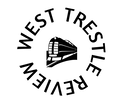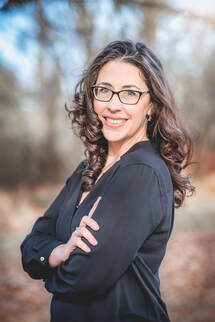After Reading Geohazard Warning Signs at Mt. Rainier
I learn the word lahar: mudflow, landslide,
that rushed obliteration of pyroclastic flow,
also that volcano’s have flanks,
and the river is the thing to watch—does it rise?
Move quickly, the signs say, to higher ground.
Someday, the mountain might remember what it is.
My friend understands. It is her mountain.
Ours, she calls it, referencing her daughters,
husband, family, her local friends—the life
she’s built, within sight of it. On clear days
you can go far and still see it, she says.
But it stays hidden from me,
mist & cloud & trees obscuring
as though what is there, isn’t.
She says it’s sad when the mountain
doesn’t come out, as though it were a child.
I tell her how, once, in Japan, I stood
on a train platform, Mount Fuji loomed
over everything and I heard sound
that was more a disturbance of sound,
a shift in air molecules, in my molecules—
by the time I turned toward it, the bullet train
was a going blur my husband never even saw—
Shinkansen, he breathed through the reverberation.
If I had leaned out, even a little—
I’d have gone with it.
My friend knows how much I need
the names of things
as if to name is to know,
to see it coming. She says they have a plan,
a meeting place— the girls know
where to go, she says, and the cats,
the cats are smart. Maybe the sound.
Maybe the change in the air.
Maybe how sometimes water rises
as if inevitable, as if there is no other way
for water to be but rising.
that rushed obliteration of pyroclastic flow,
also that volcano’s have flanks,
and the river is the thing to watch—does it rise?
Move quickly, the signs say, to higher ground.
Someday, the mountain might remember what it is.
My friend understands. It is her mountain.
Ours, she calls it, referencing her daughters,
husband, family, her local friends—the life
she’s built, within sight of it. On clear days
you can go far and still see it, she says.
But it stays hidden from me,
mist & cloud & trees obscuring
as though what is there, isn’t.
She says it’s sad when the mountain
doesn’t come out, as though it were a child.
I tell her how, once, in Japan, I stood
on a train platform, Mount Fuji loomed
over everything and I heard sound
that was more a disturbance of sound,
a shift in air molecules, in my molecules—
by the time I turned toward it, the bullet train
was a going blur my husband never even saw—
Shinkansen, he breathed through the reverberation.
If I had leaned out, even a little—
I’d have gone with it.
My friend knows how much I need
the names of things
as if to name is to know,
to see it coming. She says they have a plan,
a meeting place— the girls know
where to go, she says, and the cats,
the cats are smart. Maybe the sound.
Maybe the change in the air.
Maybe how sometimes water rises
as if inevitable, as if there is no other way
for water to be but rising.
January / February 2023
Rebecca Brock’s work appears in The Threepenny Review, CALYX, Mom Egg Review, Rust + Moth, Whale Road Review and elsewhere. She won the 2022 Muriel Craft Bailey Memorial Poetry Contest at The Comstock Review, judged by Ellen Bass, and the 2022 Editor's Choice Award at Sheila-Na-Gig. Her first chapbook, Each Bearing Out, was a semifinalist in the New Women's Voice Contest at Finishing Line Press and is now available from Kelsay Books. She has been a flight attendant for most of her adult life and is still surprised by this fact. Born in Idaho, she lives in Virginia.
Powered by Women

